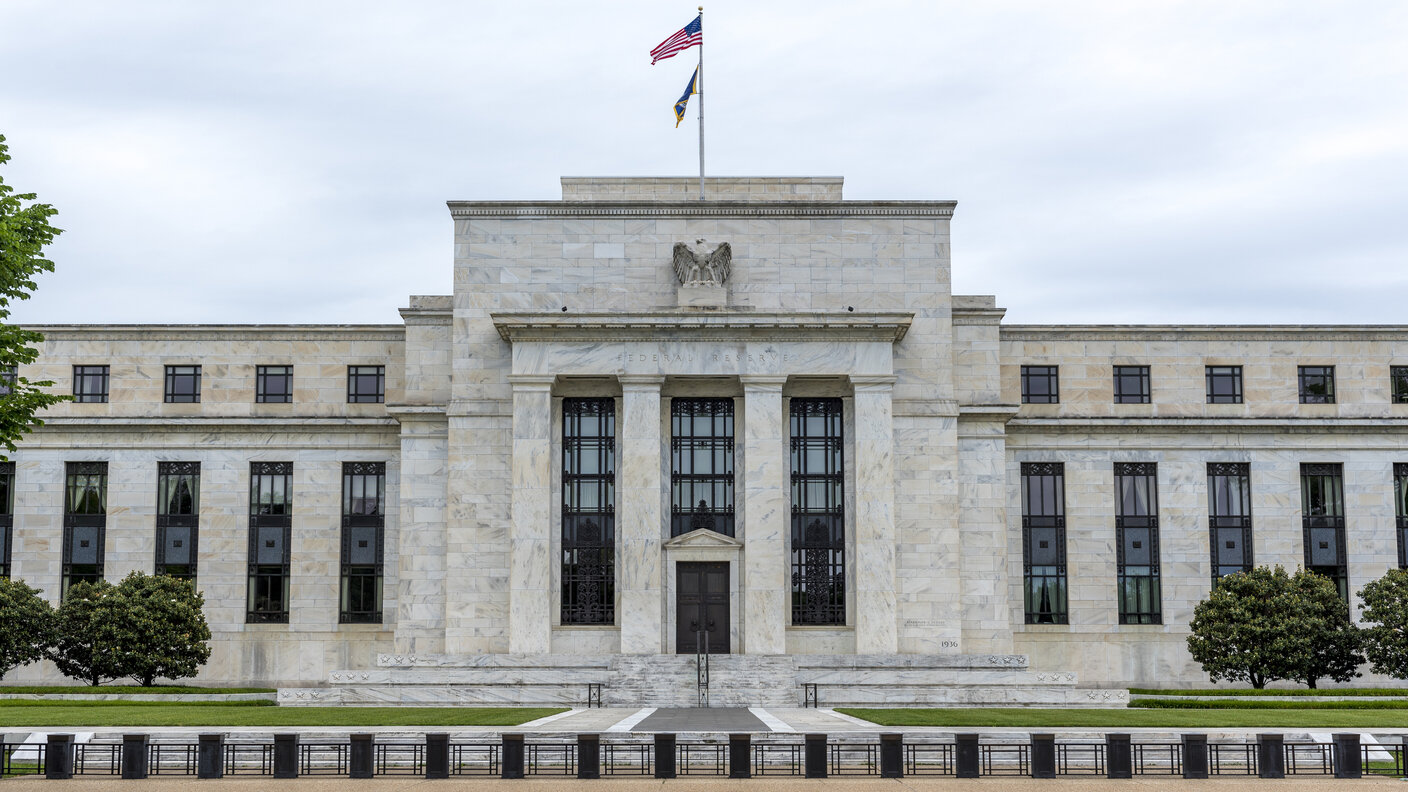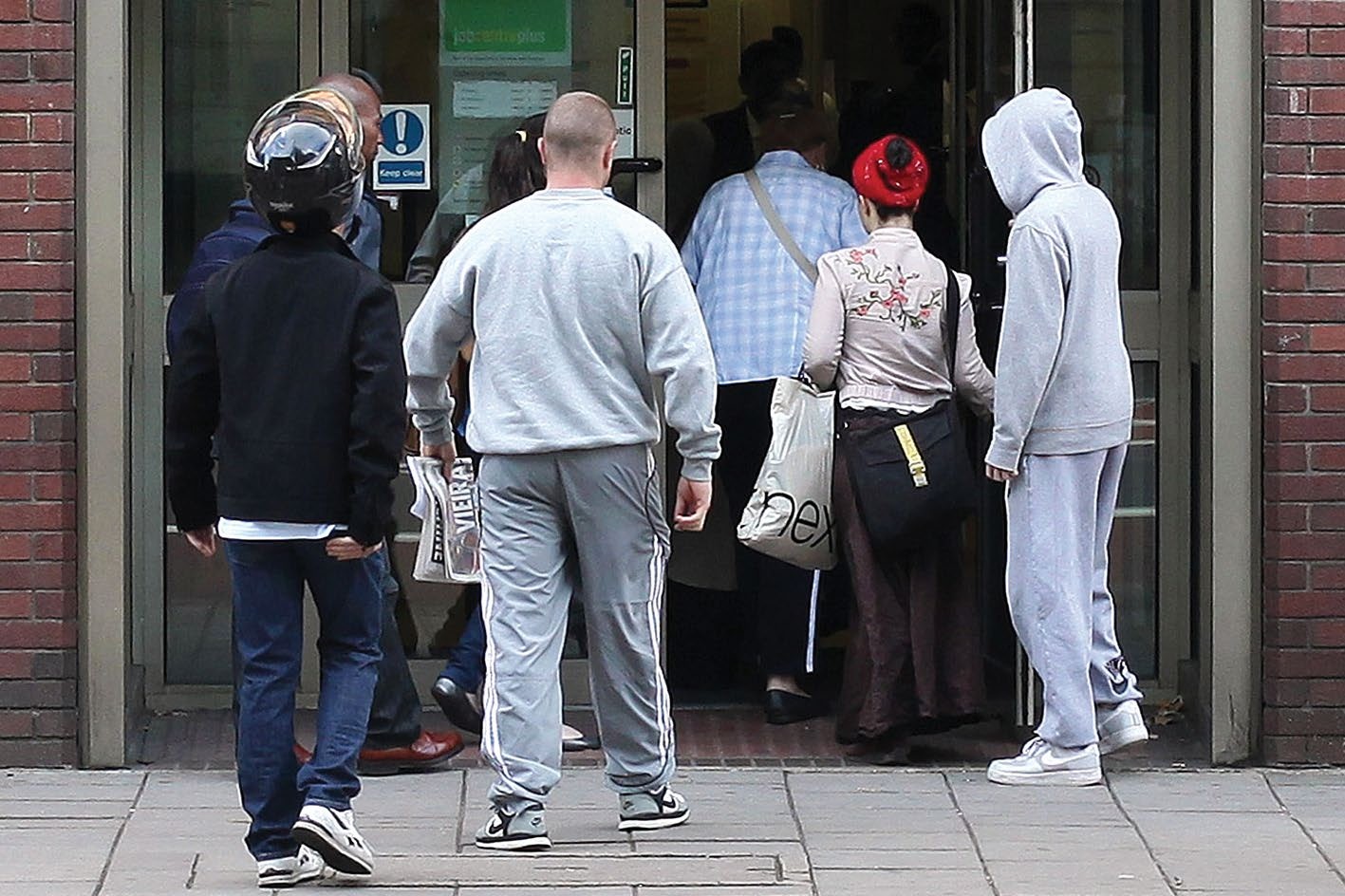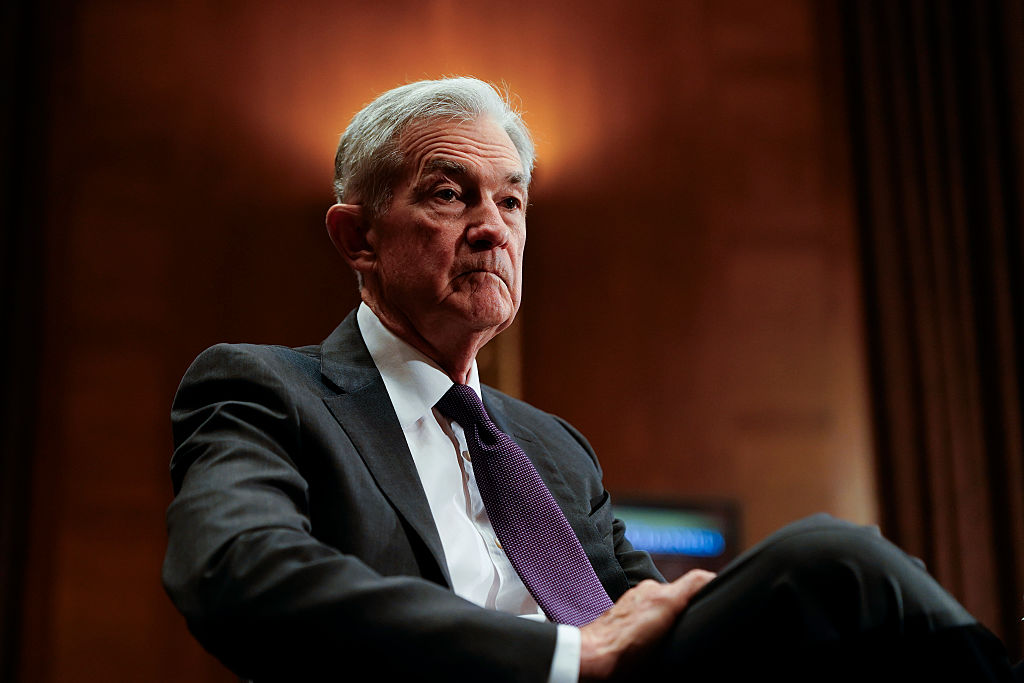US inflation falls to the lowest level in two years
The rate of CPI inflation in the US slowed to its lowest rate since April 2021, suggesting the Federal Reserve’s rate hikes may be coming to an end.


Get the latest financial news, insights and expert analysis from our award-winning MoneyWeek team, to help you understand what really matters when it comes to your finances.
You are now subscribed
Your newsletter sign-up was successful
Want to add more newsletters?
The rate of inflation in the United States slowed to its lowest rate in two years in April, indicating the Federal Reserve’s efforts to lower prices by hiking interest rates might be starting to work.
The Consumer Price Index (CPI), which measures the cost of a basket of goods, rose 0.4% in April and 4.9% over the last 12 months, but this was a deceleration from 5% the month before. The latest CPI read suggests prices are rising at the slowest rate since April 2021.
Analysts widely expected the figure to remain at 5%, so the lower figure will come as a relief to the Federal Reserve. The central bank has been hiking interest rates over the last year in an attempt to curb rising prices.
Try 6 free issues of MoneyWeek today
Get unparalleled financial insight, analysis and expert opinion you can profit from.

Sign up to Money Morning
Don't miss the latest investment and personal finances news, market analysis, plus money-saving tips with our free twice-daily newsletter
Don't miss the latest investment and personal finances news, market analysis, plus money-saving tips with our free twice-daily newsletter
What is driving inflation in the US?
The cost of housing also. Housing costs - the largest contributor to the headline figure - increased 0.4% following a 0.6% increase in March. Meanwhile, the energy index rose 0.6% in April, mostly due to an increase in the cost of petrol.
But the rate of inflation was driven down by falling airline fares, which dropped 2.6% over the month. Lower prices for new cars also helped pull down the headline number.
The rate of inflation peaked at 9.1% in the US last June, its highest level since 1981. Though it has since fallen steadily, it remains significantly above the Fed’s 2% target.
What does US inflation mean for interest rates?
Last week the Fed raised its key rate by 0.25%, taking it to a range of 5% to 5.25% – its highest level since 2007.
This marked the tenth consecutive increase in over a year, but Federal Reserve chair Jerome Powell indicated the Bank might be getting “closer” to stopping the rate hikes.
“The consensus is that the Fed's latest rate hike was certainly its last for this cycle, and the Fed will cut the rates by 75bp before the year ends,” says Ipek Ozkardeskaya, senior analyst at Swissquote Bank.
But a rate cut can’t be taken for granted just yet as inflation is still twice the Fed target rate.
On the other hand, the turmoil in the US banking sector “is tightening credit conditions and helping the Fed to do its job – restrict credit in a way to slow growth and ease inflation,” says Ozkardeskaya.
But core inflation is proving stickier, having stayed at 5.5% since the end of last year. “As a result, rate cuts towards the end of the year cannot be taken as a given, and much of it will depend on what the Fed does next,” says Richard Carter, head of fixed interest research at Quilter Cheviot.
“It will be hoping that the latest interest rate rise is enough and that this feeds into the economy in the next couple of months… The Fed will be keeping a close eye on events and as has been proven over the course of the last three years, nothing can be taken for granted. In the immediate term, a pause now seems on the cards, but beyond that remains as volatile as ever.”
Get the latest financial news, insights and expert analysis from our award-winning MoneyWeek team, to help you understand what really matters when it comes to your finances.
Nic studied for a BA in journalism at Cardiff University, and has an MA in magazine journalism from City University. She has previously worked for MoneyWeek.
-
 The scourge of youth unemployment in Britain
The scourge of youth unemployment in BritainYouth unemployment in Britain is the worst it’s been for more than a decade. Something dramatic seems to have changed in the labour markets. What is it?
-
 Do you face ‘double whammy’ inheritance tax blow? How to lessen the impact
Do you face ‘double whammy’ inheritance tax blow? How to lessen the impactFrozen tax thresholds and pensions falling within the scope of inheritance tax will drag thousands more estates into losing their residence nil-rate band, analysis suggests
-
 How a dovish Federal Reserve could affect you
How a dovish Federal Reserve could affect youTrump’s pick for the US Federal Reserve is not so much of a yes-man as his rival, but interest rates will still come down quickly, says Cris Sholto Heaton
-
 New Federal Reserve chair Kevin Warsh has his work cut out
New Federal Reserve chair Kevin Warsh has his work cut outOpinion Kevin Warsh must make it clear that he, not Trump, is in charge at the Fed. If he doesn't, the US dollar and Treasury bills sell-off will start all over again
-
 'Investors should brace for Trump’s great inflation'
'Investors should brace for Trump’s great inflation'Opinion Donald Trump's actions against Federal Reserve chair Jerome Powell will likely stoke rising prices. Investors should prepare for the worst, says Matthew Lynn
-
 'Governments are launching an assault on the independence of central banks'
'Governments are launching an assault on the independence of central banks'Opinion Say goodbye to the era of central bank orthodoxy and hello to the new era of central bank dependency, says Jeremy McKeown
-
 Will Donald Trump sack Jerome Powell, the Federal Reserve chief?
Will Donald Trump sack Jerome Powell, the Federal Reserve chief?It seems clear that Trump would like to sack Jerome Powell if he could only find a constitutional cause. Why, and what would it mean for financial markets?
-
 Can Donald Trump fire Jay Powell – and what do his threats mean for investors?
Can Donald Trump fire Jay Powell – and what do his threats mean for investors?Donald Trump has been vocal in his criticism of Jerome "Jay" Powell, chairman of the Federal Reserve. What do his threats to fire him mean for markets and investors?
-
 Do we need central banks, or is it time to privatise money?
Do we need central banks, or is it time to privatise money?Analysis Free banking is one alternative to central banks, but would switching to a radical new system be worth the risk?
-
 Will turmoil in the Middle East trigger inflation?
Will turmoil in the Middle East trigger inflation?The risk of an escalating Middle East crisis continues to rise. Markets appear to be dismissing the prospect. Here's how investors can protect themselves.
